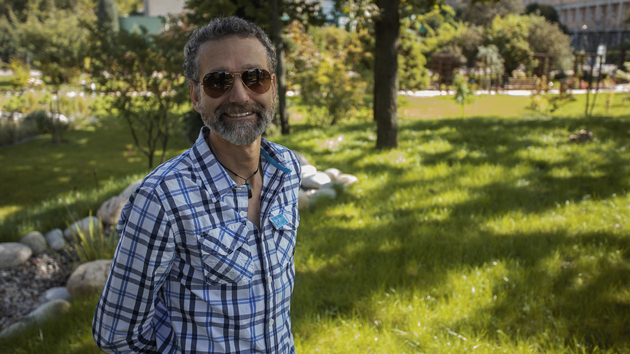Tepui – isolated table-top mountains reaching nearly 3000 m above sea level, with vertical 200-metre-high, and sometimes even 1000-metre-high walls. The mountains were created as a result of lasting millions of years erosion of Precambrian sandstone sediments, elevated as a result of tectonic movements. They look like islands in the sea of thick forests, with the summits often hidden in clouds; thus, their name which in the language of local Indians means ‘houses of gods’. These unusual elevations, which geologically remember the times of the Gondwana supercontinent, are characterized by one of the highest levels of endemism in the world.
The research results of prof. Kok prove that vertebrates that inhabit tepui are evolutionarily much "younger" and the relationship between them is much closer than expected. This means that, contrary to the popular opinion, fragmentation of some currently isolated tepui took place much later than it was thought, i.e., at the turn of the Pleistocene and Holocene, rather than during the Cretaceous period.
Professor Kok is going to examine if amphibians and reptiles that have survived millions of years in such an extraordinary environment, have developed adaptations which are non-existent in other animals. So far prof. Kok has observed that toads are able to bask in the full sun by maintaining a body temperature much lower than the ground temperature, which enables them to stay for more than an hour on hot rocks. This is quite remarkable because under such conditions, terrestrial amphibians, due to the high permeability of their skin, are very vulnerable to dehydration. Furthermore, preliminary field experiments have shown that severely dehydrated individuals recover within hours, even though they were considered dead.
Professor Philippe J. R. Kok was born in a small town of the Democratic Republic of the Congo, not far from the African Great Lake region. He defended his doctoral dissertation at Leiden University, the Netherlands, in 2013. It pertained to the systematics and evolutionary biology of amphibians and reptiles in the Pantepui – a biogeographical region of the Guiana Shield highlands – in the northern part of South America, at the border of Guyana, Venezuela and Brazil. Professor Kok connected his further scientific path with this region of the world. He spent there more than 900 days taking part in dozens of Indiana Jones-style expeditions. He carried out field studies in various ecosystems, from tropical jungles to fascinating but unfriendly tepui.
Source: Faculty of Biology and Environmental Protection, UL
Edit: Promotion Centre, UL

